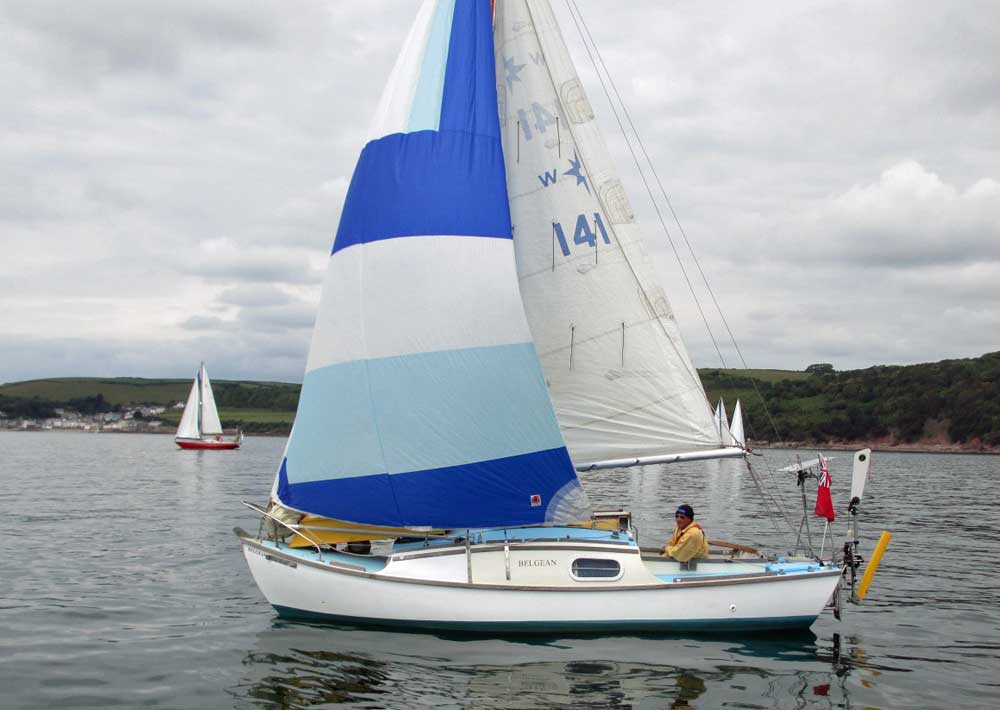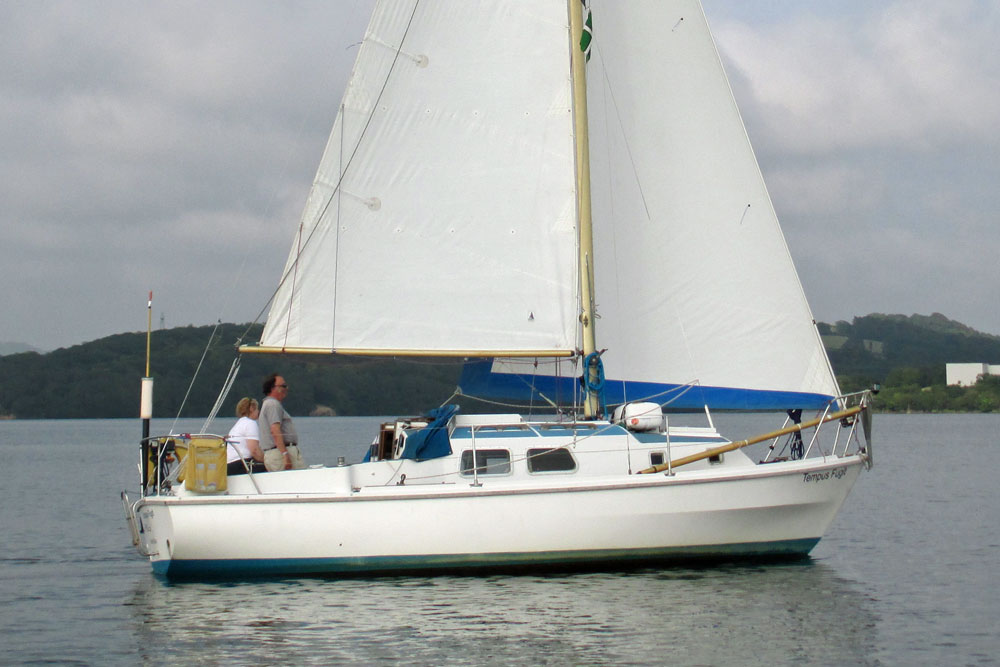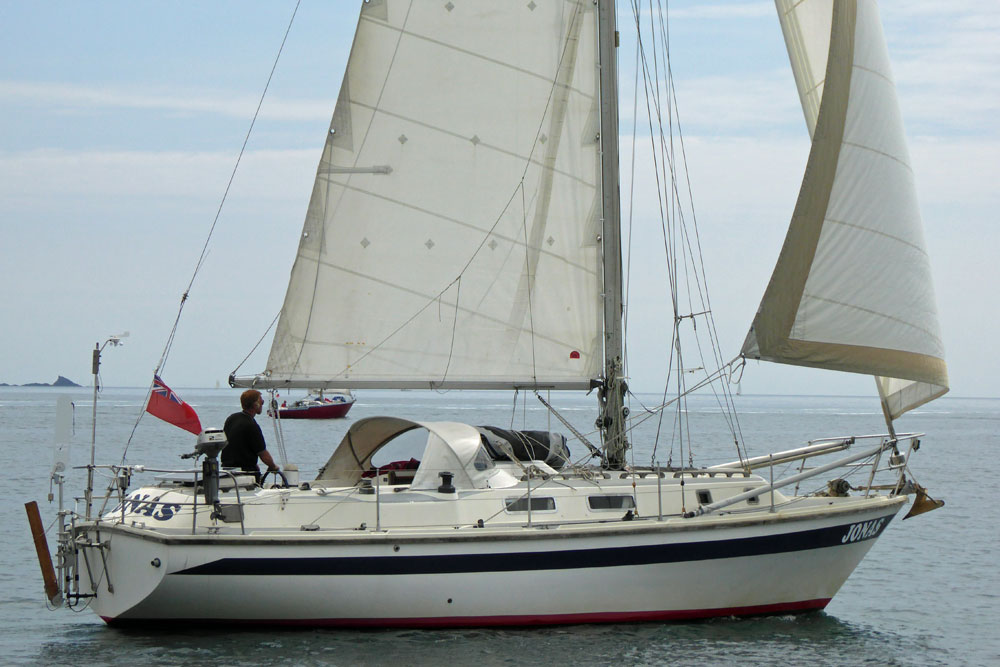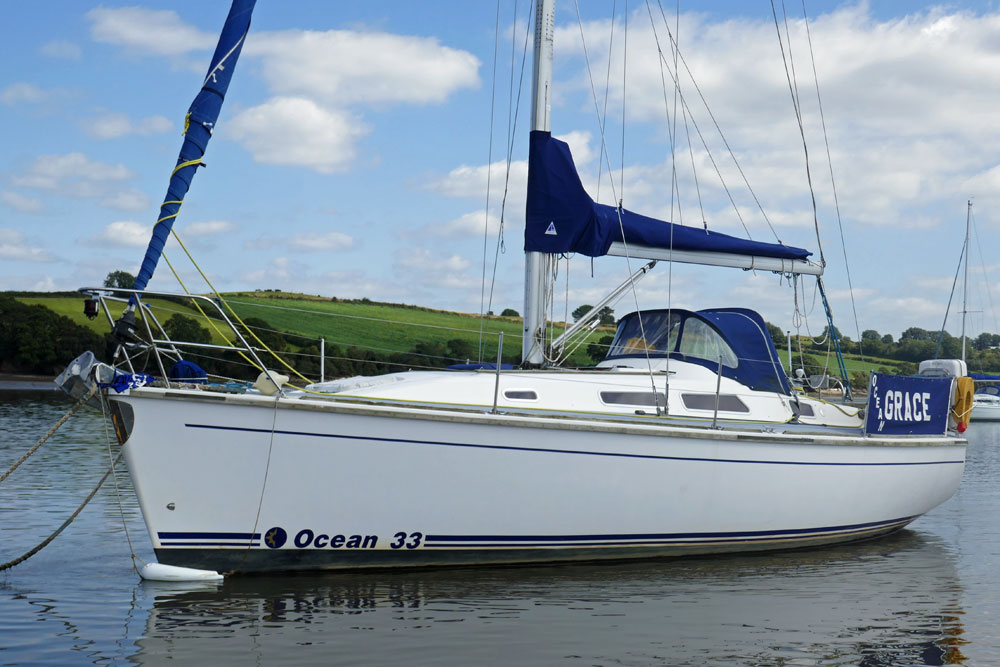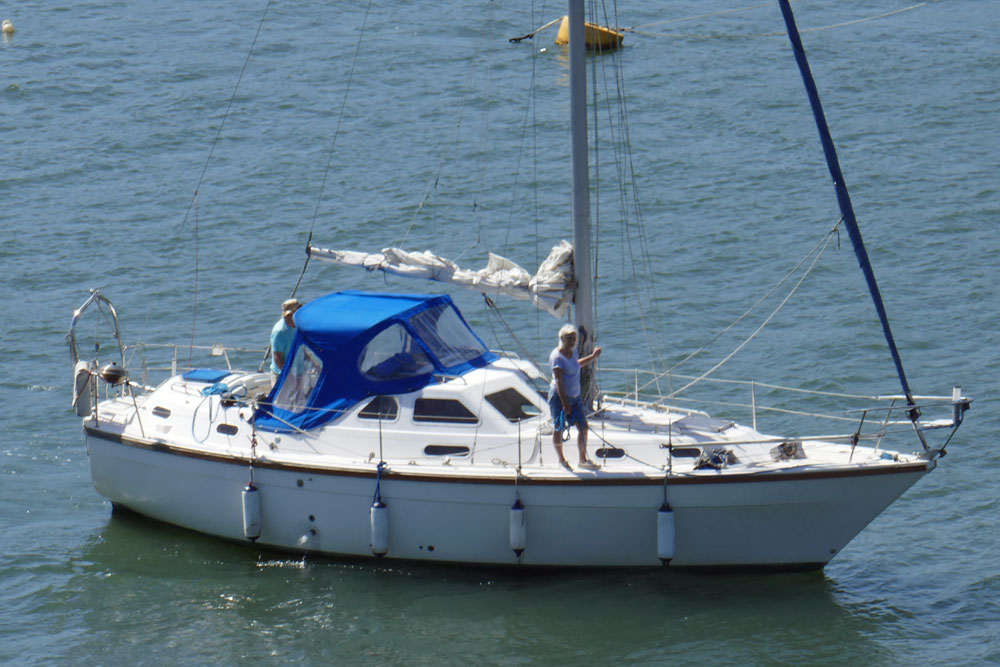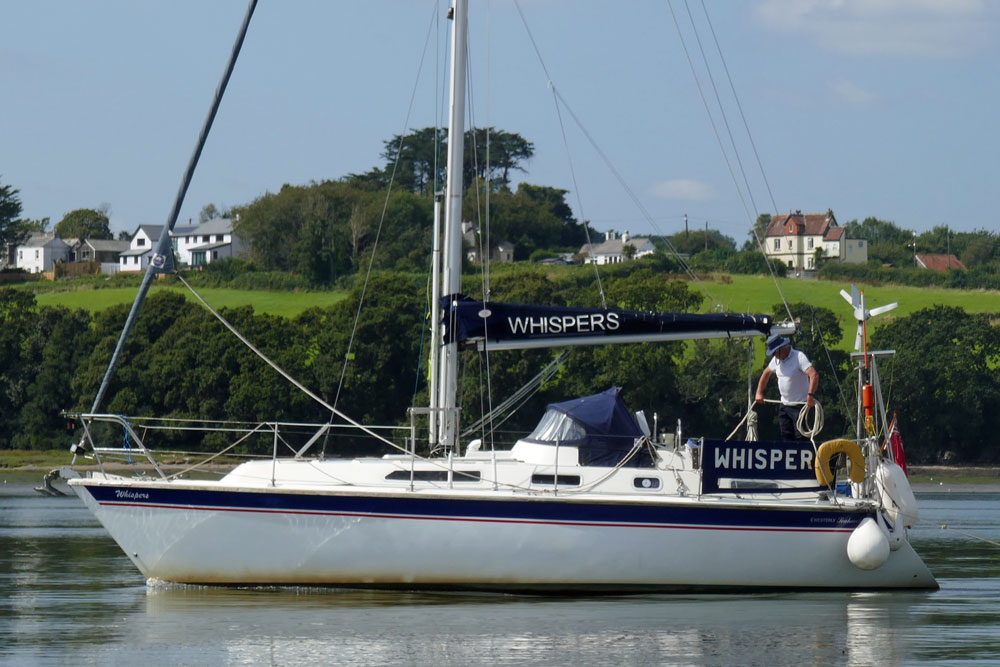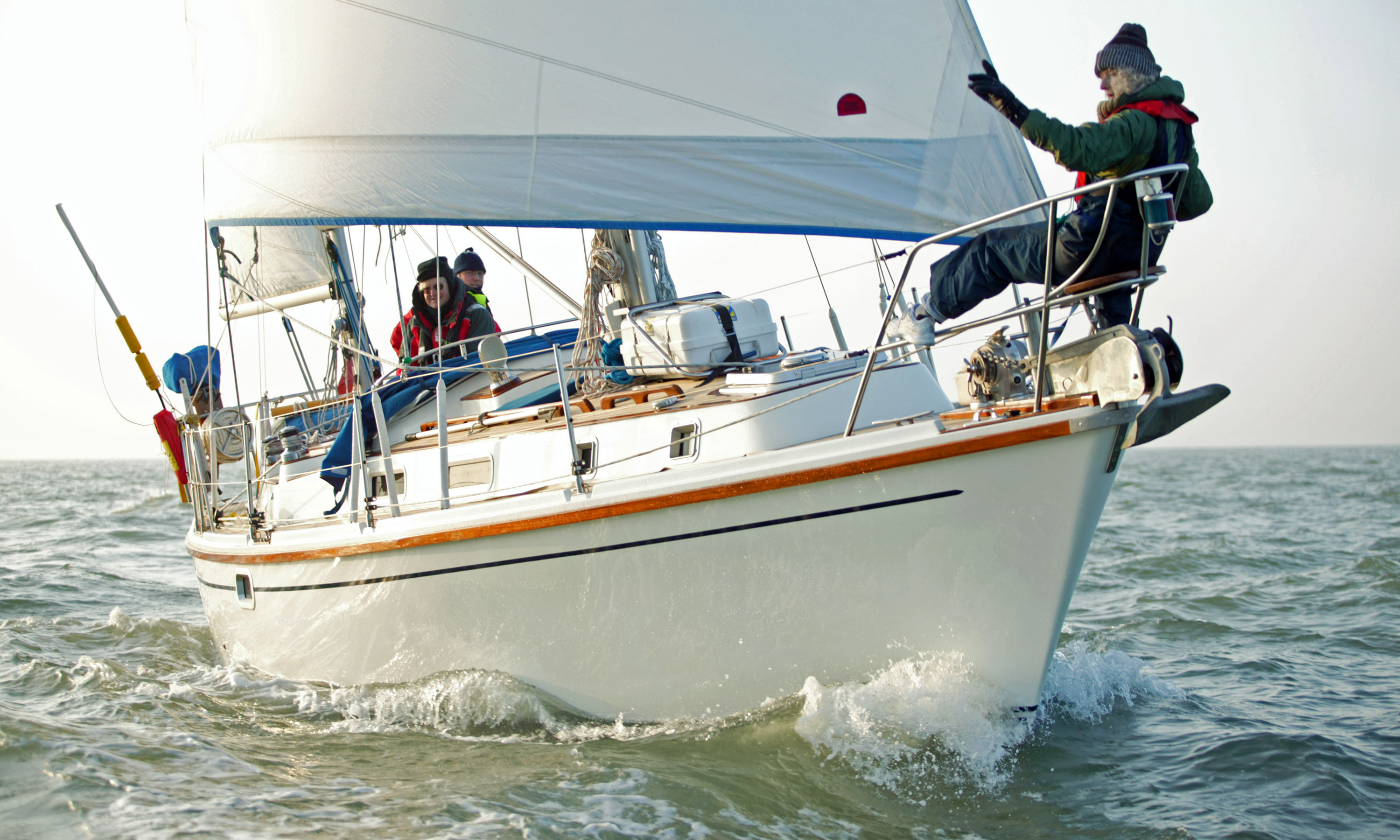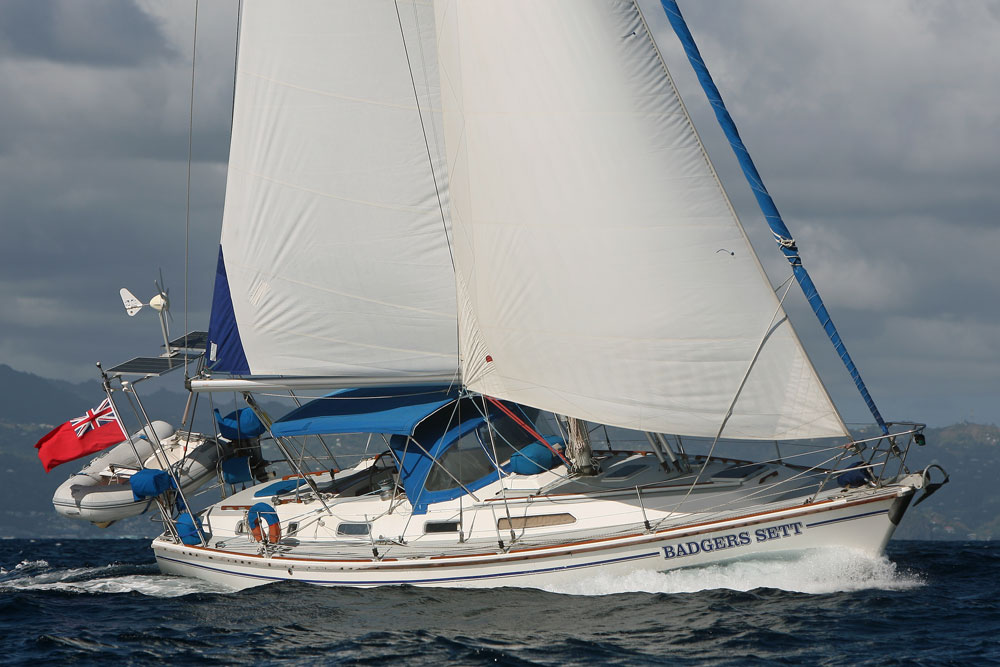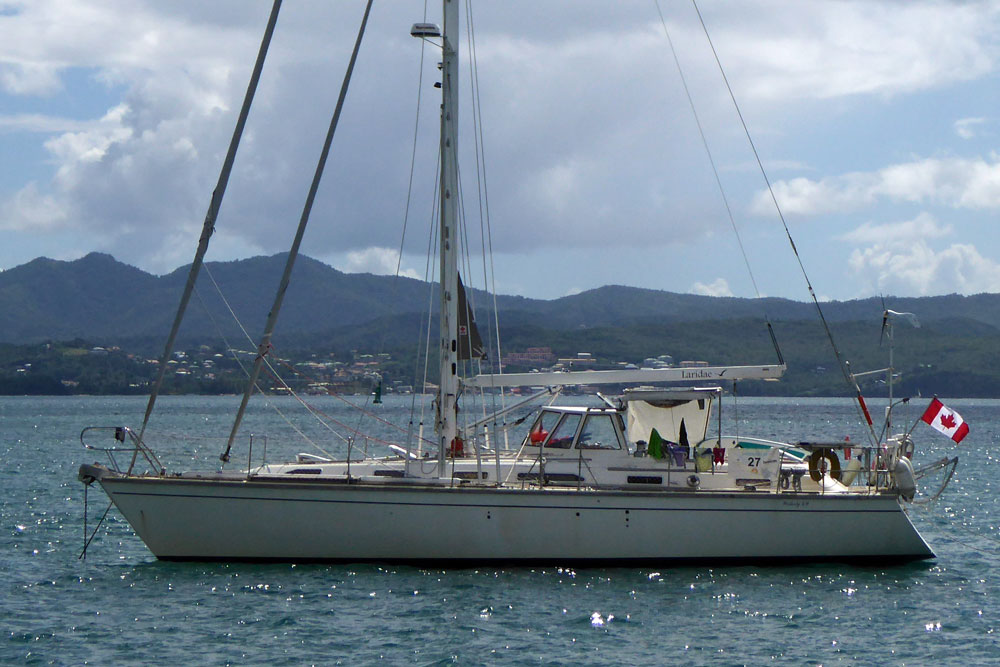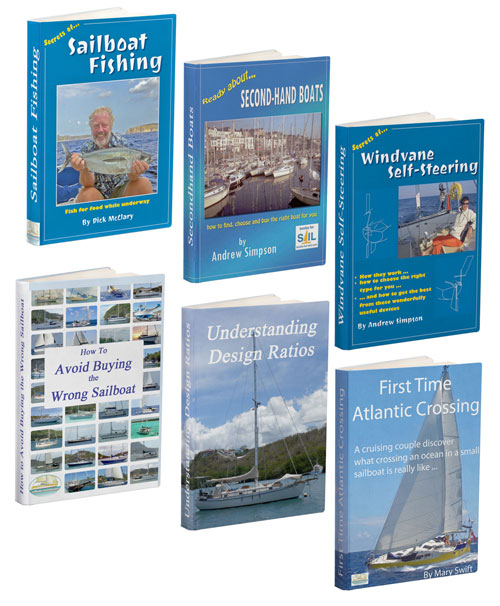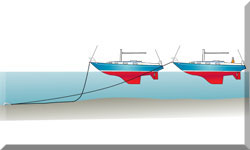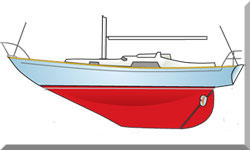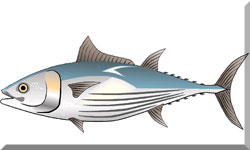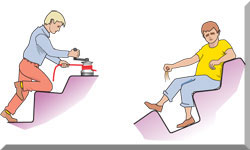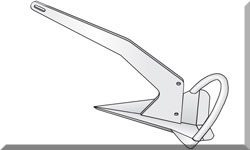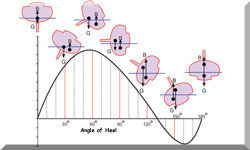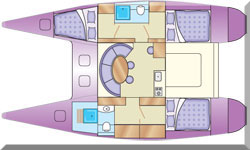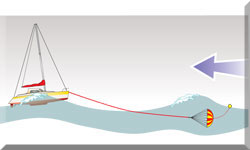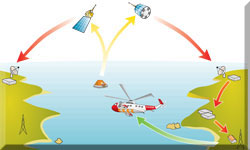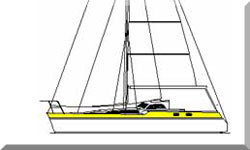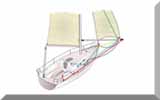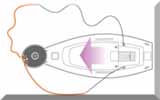- Home
- Cruising Yachts 35' to 40'
- Westerly Typhoon
The Westerly Typhoon 37 Sailboat
Specs & Key Performance Indicators
The Westerly Typhoon 37, an aft-cockpit fractional sloop, was designed by Ed Dubois and built in the UK by Westerly Marine Construction Co Ltd.
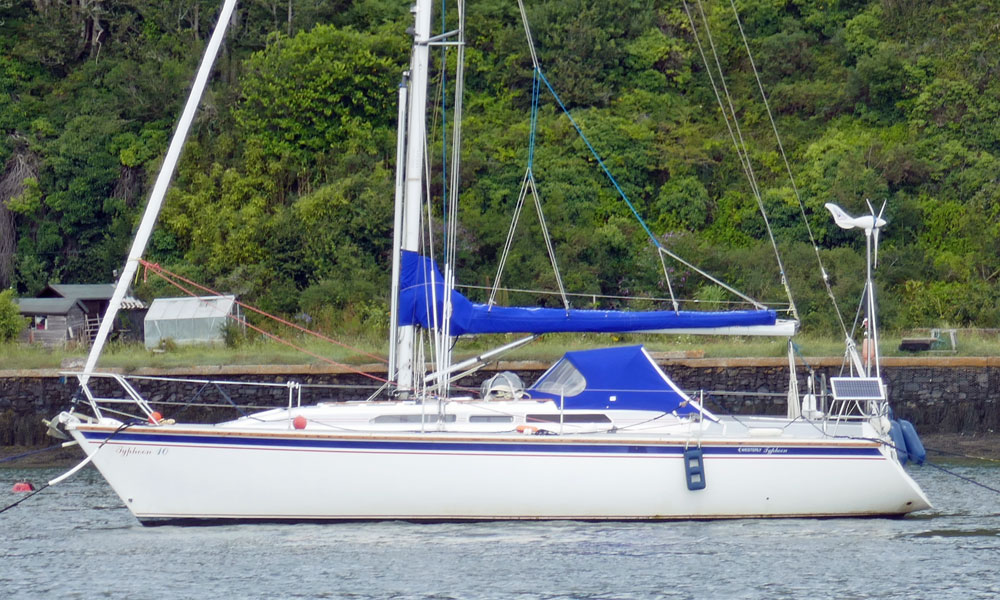 A Westerly Typhoon 37
A Westerly Typhoon 37Published Specification for the Westerly Typhoon 37
Underwater Profile: Bulb fin keel & spade rudder
Hull Material: GRP (Fibreglass)
Length Overall: 37'4" (11.4m)
Waterline Length: 31'11" (9.7m)
Beam: 12'4" (3.8m)
Draft: 6'0" (1.8m)
Rig Type: Fractional sloop
Displacement: 16,470lb (7,471kg)
Designer: Ed Dubois
Builder: Westerly Marine Construction Co Ltd (UK)
Year First Built: 1990
Year Last Built: 1993
Number Built: 40
Published Design Ratios for the Westerly Typhoon 37
1. Sail Area/Displacement Ratio: 21.3
2. Ballast/Displacement Ratio: 36.7
3. Displacement/Length Ratio: 226
4. Comfort Ratio: 26.7
5. Capsize Screening Formula: 1.9
Summary Analysis of the Design Ratios for the Westerly Typhoon 37
1. A Sail Area/Displacement Ratio of 21.3 suggests that, in the right hands, the Westerly Typhoon 37 will have enough performance to leave most other sailboats of similar waterline length well astern.
2. A Ballast/Displacement Ratio of 36.7 would usually mean that the Westerly Typhoon 37 would have a tendency to heel excessively in a gust, and need to be reefed early to keep her sailing upright in a moderate breeze.
However, as she has much of her ballast concentrated in a bulb at the foot of the keel, she's likely to be considerably stiffer than her published Ballast/Displacement Ratio might suggest.
3. A Displacement/Length Ratio of 226 tells us the Westerly Typhoon 37 is a moderate displacement cruiser, which means she'll carry all your cruising gear without it having a dramatic effect on her performance. Most of today's sailboats intended for offshore cruising fall into this displacement category.
4. Ted Brewer's Comfort Ratio of 26.7 suggests that crew comfort of a Westerly Typhoon 37 in a seaway is similar to what you would associate with the motion of a coastal cruiser with moderate stability, which is not encouraging news for anyone prone to seasickness.
5. The Capsize Screening Formula (CSF) of 1.9 indicates that a Westerly Typhoon 37 would be a safer choice of sailboat for an ocean passage than one with a CSF of more than 2.0.
More about the Westerly Typhoon 37...
The Westerly Typhoon was introduced in 1990 as a larger and better version of the Westerly Storm 33. It has a fractional rig with a single spreader mast, which can be stepped on the deck or the keel. The boat has a fin keel with a spade rudder, giving it excellent maneuverability and upwind performance. The boat also has an inner forestay that can fly a staysail, adding versatility to the sail plan.
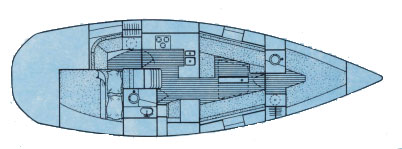 Westerly Typhoon 37 Accommodation Layout
Westerly Typhoon 37 Accommodation LayoutThe Typhoon is a fast boat that can reach speeds of over 8 knots in moderate winds. It is also very light on the helm, making it easy to steer and control. The boat has a sleek and elegant profile, with a low coachroof and a large cockpit. The cockpit can be either center or aft, depending on the owner's preference.
The Typhoon is not only fast, but also fun to sail. It has a lively and responsive character that makes it exciting to handle in different conditions. It can surf on waves, point high, and run smoothly. It also gives that magic thrill when you know you're on a special boat!
Accommodation
The Westerly Typhoon is not as spacious as some other Westerlys of the same size, but it still offers enough room and comfort for a cruising family. The boat has a traditional layout, with two separate cabins, one forward and one aft. The forward cabin has a V-berth that can sleep two people, while the aft cabin has a double berth that can also sleep two. Both cabins have storage lockers and shelves for personal belongings.
The main saloon is cozy and inviting, with a U-shaped settee to port and a straight settee to starboard. The settees can also serve as extra berths if needed. The saloon has a folding table that can accommodate six people for dining or socializing. There are also storage lockers and bookshelves along the hull sides.
The galley is located to port, near the companionway. It is well-equipped with a two-burner stove with oven, a sink with hot and cold water, and a top-loading fridge. There is also plenty of counter space and storage for cooking utensils and provisions.
The forward-facing navigation station is opposite the galley, on the starboard side. It has a large chart table with drawers and shelves for charts and instruments.
The head is located aft of the navigation station, to starboard. It has a marine toilet, a sink with hot and cold water, and a shower. There is also a wet locker for hanging wet clothes.
The interior of the Typhoon is finished in teak woodwork, giving it a warm and classic feel. The upholstery is blue or beige, depending on the owner's choice. The boat has ample natural light and ventilation from several opening ports and hatches.
Hull and Deck
The hull of the Westerly Typhoon is made of solid hand-laid fiberglass laminate, with GRP balsa sandwich deck construction. The hull has Lloyds hull construction certificates, attesting to its quality and durability. The hull is white or cream in color, with blue or red stripes along the waterline and the coachroof.
The deck of the Typhoon is wide and flat, making it easy to walk around and work on. There are stainless steel stanchions and lifelines for safety, as well as teak handrails on the coachroof. The foredeck has an anchor locker with an electric windlass for easy anchoring. There are also two bow cleats and two stern cleats for mooring.
The cockpit of the Typhoon is spacious and comfortable, with high coamings for protection from spray. There are two large lockers for storing sails and other gear. There are also two winches on each side of the cockpit for handling the sheets and halyards.
This article was written with the assistance of Gemini, a large language model developed by Google. Gemini was used to gather information, summarize research findings, and provide suggestions for the content and structure of the article.
Other sailboats in the Westerly range include:
Recent Articles
-
Is Marine SSB Still Used?
Apr 15, 25 02:05 PM
You'll find the answer to this and other marine SSB-related questions right here... -
Is An SSB Marine Radio Installation Worth Having on Your Sailboat?
Apr 14, 25 02:31 PM
SSB marine radio is expensive to buy and install, but remains the bluewater sailors' favourite means of long-range communication, and here's why -
Correct VHF Radio Procedure: Your Questions Answered
Apr 14, 25 08:37 AM
Got a question about correct VHF radio procedure? Odds are you'll find your answer here...

